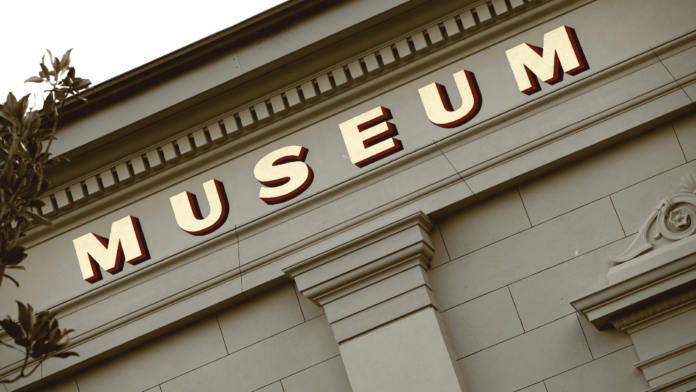Abuja, Nigeria’s vibrant capital city, is more than just a center of politics and governance it’s a hub for history and culture. Home to a range of fascinating museums, Abuja offers history enthusiasts an opportunity to delve into Nigeria’s rich heritage, diverse traditions, and compelling stories. Whether you’re a local eager to learn more about your roots or a visitor exploring the city’s cultural gems, Abuja’s museums provide a window into the past that’s both educational and inspiring. In this guide, we’ll explore some of the top museums in Abuja that every history lover should visit.
1. National Museum Abuja
Located in the city center, the National Museum Abuja is one of the most prominent museums in the country. It offers an extensive collection of artifacts that tell the story of Nigeria’s history and culture.
What to Expect:
- Historical artifacts, including Nok Terracotta sculptures.
- Galleries showcasing Nigeria’s pre-colonial, colonial, and post-independence eras.
- A dedicated section for traditional Nigerian art and crafts.
Why Visit? This museum provides a comprehensive overview of Nigeria’s cultural diversity, making it a perfect starting point for any history lover.
Pro Tip: Visit during the week for a quieter experience and take advantage of the guided tours.
2. Thought Pyramid Art Centre
While primarily an art center, the Thought Pyramid Art Centre features exhibitions that often delve into Nigeria’s history and cultural identity. It blends contemporary art with historical themes, offering a unique perspective on the country’s past.
What to Expect:
- Rotating exhibits featuring historical and cultural art.
- A collection of works that explore Nigeria’s societal evolution.
- A library with books and resources on African art and history.
Why Visit? This museum offers a fresh way to explore Nigeria’s history through the lens of art, making it ideal for those interested in both history and creative expression.
Pro Tip: Check their event schedule for special exhibitions and cultural events.
3. Nike Art Gallery
Though primarily known as an art gallery, Nike Art Gallery in Abuja also offers a deep dive into Nigeria’s cultural history. The gallery is a celebration of Nigerian heritage through traditional and contemporary art.
What to Expect:
- Traditional textiles, sculptures, and paintings.
- Insight into the history of Nigerian art forms like Adire (tie-dye).
- Workshops and interactive sessions on traditional Nigerian crafts.
Why Visit? This is an excellent place to learn about the cultural history of Nigeria through its artistic expressions.
Pro Tip: Take part in one of their craft-making workshops to get hands-on experience with traditional art techniques.
4. Nigerian National Mosque Museum
Situated within the premises of the Nigerian National Mosque, this museum provides a fascinating glimpse into the Islamic history and culture of Nigeria.
What to Expect:
- Historical artifacts related to Islam in Nigeria.
- Exhibits on traditional Islamic architecture and calligraphy.
- Insight into the role of Islam in Nigeria’s history and society.
Why Visit? This museum is ideal for understanding the religious and cultural history of one of Nigeria’s major faiths.
Pro Tip: Combine your visit with a tour of the stunning National Mosque for a complete experience.
5. Bwari Pottery Village
While not a traditional museum, Bwari Pottery Village serves as a living museum showcasing the age-old craft of pottery. This village offers a hands-on exploration of a significant aspect of Nigeria’s cultural history.
What to Expect:
- Demonstrations of traditional pottery-making techniques.
- An opportunity to create your own pottery piece.
- Exhibits on the history of pottery in Nigeria.
Why Visit? This is a unique way to connect with Nigeria’s history through one of its oldest crafts.
Pro Tip: Purchase some locally made pottery to take a piece of history home with you.
Read More: Must Visit Art Galleries in Lagos for Creative souls
6. International Institute for Nigerian Culture and Language (IINCL)
This institute doubles as a museum and research center, offering visitors a deep dive into Nigeria’s linguistic and cultural heritage.
What to Expect:
- Exhibits on Nigeria’s numerous ethnic groups and languages.
- Cultural artifacts and traditional attire from across the country.
- Information on the role of language in Nigeria’s history.
Why Visit? For a deeper understanding of Nigeria’s cultural diversity and the historical role of language, this is a must-visit destination.
Pro Tip: Attend one of their lectures or events for a more immersive experience.
7. National Children’s Park and Zoo Museum Section
While primarily a zoo, this park also features a museum section that focuses on the natural history of Nigeria. It’s an excellent option for those looking to combine history with a bit of outdoor exploration.
What to Expect:
- Exhibits on Nigeria’s wildlife and ecological history.
- Artifacts related to the country’s environmental conservation efforts.
- A family-friendly atmosphere.
Why Visit? This is a great option for history enthusiasts traveling with children or those interested in the intersection of natural history and cultural heritage.
Pro Tip: Plan a full day here to explore both the museum and the zoo.
Tips for Visiting Museums in Abuja
- Plan Ahead: Check opening hours and admission fees as they may vary.
- Take a Guide: Many museums offer guided tours to enhance your understanding of the exhibits.
- Combine Visits: Group nearby attractions to maximize your time in the city.
- Respect the Rules: Some museums have strict photography policies, so be sure to ask before taking pictures.
Conclusion
Abuja’s museums offer a captivating journey into Nigeria’s past, showcasing its cultural richness and historical milestones. From the ancient Nok artifacts at the National Museum to the living history of Bwari Pottery Village, each location provides a unique perspective on the nation’s heritage. Whether you’re a history enthusiast or just curious to learn more about Nigeria, these museums are sure to leave you inspired and informed.




